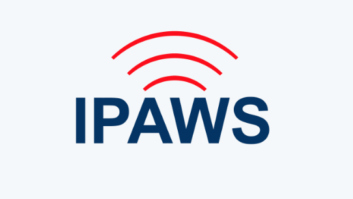The author is membership program director of the National Federation of Community Broadcasters. NFCB commentaries are featured regularly atwww.radioworld.com.
One story grabbed radio headlines this week, but an equally important one should be on the minds of community media right now.
On Feb. 12, the White House released its proposed budget, which would gut the Corporation for Public Broadcasting as well as slash the Federal Communications Commission. It is a story repeated from last year, though a strong pushback is already underway.
When Pres. Trump suggested these cuts last year, I wrote for Radio World about why CPB matters. Just over 365 days later, the administration’s ambitions are uncertain at best. The latest budget is already under heavy fire, including from some of Pres. Donald Trump’s backers. With midterm elections looming, lawmakers are making moves with an eye to November. It is doubtful cutting educational media — still, to many Americans, Big Bird and kids — is going to win over voters. Indeed, in a statement, CPB’s Patricia Harrison reminded Washington how Americans depend on CPB to boost children’s programming, emergency alerts and journalism. You can guess a diverse coalition is going to speak up for community media, too.
Pres. Trump’s proposed budget garnered many headlines. However, the race to the launch of the new electronic public file is the issue community radio should not ignore.

Many full-power noncommercial radio stations are familiar with the public file, the documentation of the station’s community service, broadcast operations and miscellany that was to be accessible during office hours. As a former program director, I have fond memories of file cabinet drawers filled with records and a crisp manila folder that retained the core materials of my station’s public file. As of March 1, the paper files vanish in favor of a web-based system, hosted by the FCC.
When the FCC announced the new public file system long ago, March 1, 2018, felt so far away. Now, when you call the FCC’s help line, beleaguered staff members report they are slammed with calls. Stations in a select set of cases are just now seeking help. As of today, there are less than two weeks to go before all stations are required to be in the new online system and to have sometimes years of their public files loaded.
Among low-power FM stations, whose public file requirements are minimal and not subject to the new system, there is a sigh of relief. For full-power community radio, there is a lot of scrambling, and a ton of questions.
The National Federation of Community Broadcasters and law firms like Garvey Schubert Barer are among those with checklists and guidance for noncommercial stations preparing their records for upload.
If you are getting to your electronic public file just now, please know you must log in with your facility ID and passcode at the FCC’s designated page. If you do not have a passcode, you can get one when you click “sign in to Owner Dashboard” and log in with your FCC registration number and password. You will see a list of your facilities and their electronic Public Inspection File (e-PIF) passcodes there.
You’ll notice your public file is organized by folders and tabs. You will need to upload your documents in their existing formats and keep them searchable, if possible.
According to the FCC, stations must load items you traditionally keep updated in your file, like the quarterly issues/programs reports and donor lists. However, items like broadcast station renewal and transfer applications on file at the FCC will be loaded for you. Political files — those records of candidate appearances stations keep — should be uploaded, but also retained until the end of the traditional two-year window.
Finally, please remember your station must have link on its homepage to the station’s online public file, along with contact information on the homepage for assistance for people with disabilities.
The FCC is allowing extra time to comply with the new system if you are a small station, particularly in a rural area, and believe the online transition will impose an undue burden. To get this two-year waiver, you must document the economic hardship you will incur, any technical inability to comply, and other pertinent information the commission will need to render a judgment. Your station should contact the FCC immediately to determine your eligibility for such a waiver.
The news cycle is packed with important and at times salacious stories demanding our attention. With the looming online public file system deadline fast approaching, though, community radio managers and supporters should bear in mind this crucial FCC milestone.












